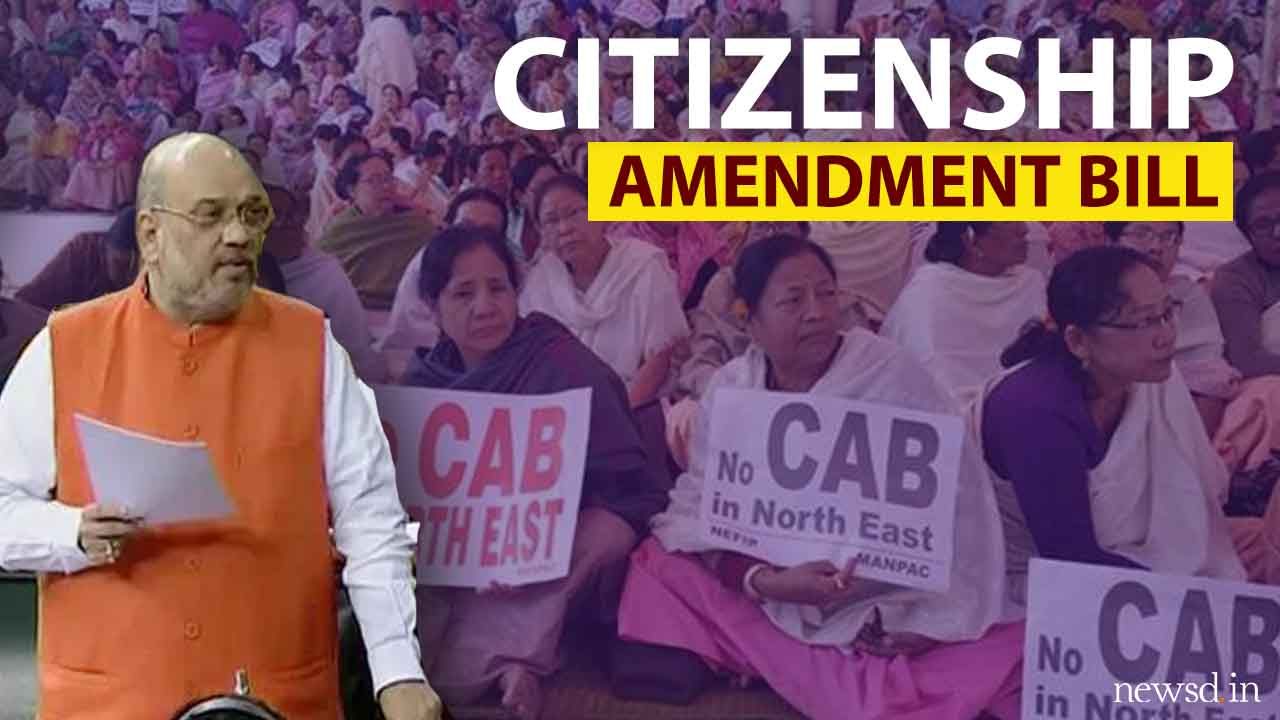Article 14 in the Constitution of India
Equality before law The State shall not deny to any person equality before the law or the equal protection of the laws within the territory of India Prohibition of discrimination on grounds of religion, race, caste, sex or place of birth
Article 15 (1)
Prohibition of discrimination on grounds of religion, race, caste, sex or place of birth
(1) The State shall not discriminate against any citizen on grounds only of religion, race, caste, sex, place of birth or any of them
Recently introduced Citizenship (Amendment) Bill 2019, seeks to give Indian citizenship to immigrants from Pakistan, Afghanistan and Bangladesh (if they entered on or before 2014) provided they are from six religious minorities – Hindu, Sikh, Buddhist, Jain, Parsi and Christian. It excludes Muslims. Making religion basis for granting citizenship and then excluding Muslims is in open violation of the secular principles enshrined in the constitution through articles 14 and 15.
The proposed bill should be seen in the context of National Register of Citizens (NRC) which is a list of names and some relevant information of Indian citizens of Assam state. Recently Home Minister has declared that register would be extended to entire country. These two are linked in the sense, as lawyer Gautam Bhatia pointed out, “If the government goes ahead with its plan of implementing the nationwide NRC, then those who find themselves excluded from it will be divided into two categories: (predominantly) Muslims, who will now be deemed illegal migrants, and all others, who would have been deemed illegal migrants, but are now immunised by the Citizenship Amendment Bill, if they can show that their country of origin is Afghanistan, Bangladesh or Pakistan.”
Citizenship Amendment Bill will protect non-Muslims from other countries, says Giriraj Singh
Bill was criticized by several opposition leaders. Leader of the Congress Adhir Ranjan Chaudhary stated that “It is nothing but targeted legislation over minority population of our country” and that it was a step towards “Hindu Rashtra”. NCP MP Supriya Sule, invoked articles 14 and 15 and ventured that Supreme Court will strike it down. AIMIM leader Owaisi tore a copy of the bill saying that the bill “…is a conspiracy to make Muslims stateless.” CM of West Bengal Mamata Bannerjee said that “Its a divisive bill and shall be opposed at any cost.”
It was supported however by many. JD(U) leader in the Lok Sabha and Munger MP Rajiv Ranjan Singh said, ““We support this bill. This bill should not be seen in the light of majority or minority libing in the country.” BJD leader and Odisha Chief Minister Naveen Patnaik also extended his support for the bill.
After an entire day of discussions bill was cleared by the Lok Sabha with 311 voting in support and 80 against. PM Modi tweeted his congratulations – “Delighted that the Lok Sabha has passed the Citizenship Amendment Bill, 2019, after a rich and extensive debate. I thank the various MPs and parties that supported the bill. This bill is in line with India’s centuries-old ethos of assimilation and belief in humanitarian values.” Home Minister Amit Shah clarified that “The Citizenship Amendment Bill does not include Muslims migrants from Pakistan, Bangladesh and Afghanistan only because they are not minorities there. It’s as simple as that.” Moreover he argued that the need for bill arises because Congress “allowed partition on the basis for religion.”
Citizenship Amendment Bill is divisive and unconstitutional: TMC’s Saugata Roy
This bill sets a dangerous precedent for allowing religious identity to become basis for gaining citizenship. Moreover it is false that Congress partitioned India on religious lines. India was founded on secular principles and was not created for non-Muslims. However this bill – by singling out Muslims (and hinting at them as “intruders” – as opposed to others as “refugees”) is discriminatory and further contributes to the recent narrative of “othering” the Muslim while severely denting the secular fabric of the nation. United opposition to CAB is critical at this juncture before India enters a point of no return.
UP Shia Waqf Board asks for inclusion of community in Citizenship Amendment Bill
(The views expressed above are the author’s own. Newsd neither endorses nor is responsible for the same.)


















